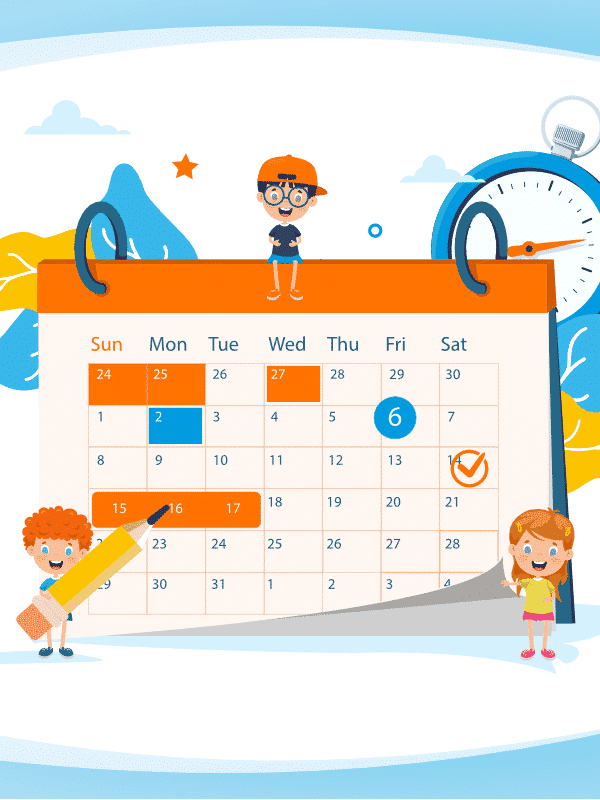Taking classes to learn a second language is a great thing to do for our kids, our family, and even ourselves. It’ll bring many benefits for the short and long term and in our personal and professional lives.
But have you given it a thought on whether you and your kids should learn or acquire the language. Wait! Aren’t those the same thing? Well, not really.
So, now you might wonder: Which way will be more fun? Which one will be better for us to learn and to achieve our language goals?
Many schools focus on just learning. They teach us grammar, writing, and vocabulary, among other things! So that must be the right way to learn, right? Well…
In the interview “Comprehensible Input and Multilingual Children”, professor Stephen Krashen talks about language learning and language acquisition. As well as some of his experiences while learning languages.
We thought this interview could be a good way to start informing yourself about learning and acquiring a language. As well as to make a better decision on how you’d like your kids to learn a second language. That’s why we made you a summary of that interview, so you can check out what all the speakers think.
Speakers
Tetsu Yung – Host
Tetsu Yung has a Bachelor of Science in Biology from McGill University. As well as a M.S.c. and Ph.D in Cellular and Molecular Biology by the Université Laval. Then he got an MBA in Finance and International Business, also from McGill University.
He has a lot of job experience, including being the co-founder of Raising Multilinguals LIVE.
During this interview, he explains that he speaks Spanish fluently and that he achieved that level thanks to comprehensive input. He’s a polyglot and some of the languages he speaks are Chinese, French, and Japanese.
Rita Rosenback – Host
According to her LinkedIn, Rita Rosenback studied a Bachelor of Arts in German, Swedish, Finnish, Sociology at Åbo Akademi University. She has a long experience working with languages. One of her jobs was being an Intercultural Youth Trainer at BGRS. As well as being a Project Partner at PEaCH Project.
She also founded the blog “Multilingual Parenting”.
She’s a polyglot and has learned many languages, including Finnish, French, and Swedish. As if that weren’t enough, she also wrote the book “Bringing Up a Bilingual Child”.
Ute Limacher-Riebold – Host
Ute Limacher-Riebold is a Doctor in Philosophy by the University of Zurich. She also has different certifications, including a Teaching English as a Second or Foreign Language (TESFL) certification by the International Open Academy.
She also has a lot of experience in language-related jobs. She’s worked as a freelance translator, a Multilingual Language Consultant and Intercultural Communication Trainer at ACCESS Netherlands, and a Digital Multicultural Content Creator for the blog “Expatsincebirth”.
She also offers courses related to language and multilingual communication on her website “Ute’s International Lounge & Academy”. On top of that she’s the founder of “Multilingual Families”. She speaks Dutch, German, Italian, English, and more languages!
Stephen Krashen – Speaker
Stephen Krashen is a renowned linguist and professor. He’s specially focused on second language acquisition and has presented many hypotheses related to it. He’s also written many different articles and books about this topic.
He’s won different awards, including the Pimsleur Award. In 2005, he was inducted into the Reading Hall of Fame of the International Literacy Association.
During this interview, he states that his passion for languages started at 20 years old when he went to Europe. During a party, he met another young man who was talking to everyone in the party in their own mother tongues.
That means he was talking to everyone in different languages! Krashen was so impressed by that that he decided he wanted to be a polyglot too. So, later in Paris he enrolled in a French class and his journey began…
Language Acquisition vs Language Learning
During this interview, they talk about the differences between language acquisition and language learning. For many people, these two things are synonyms; but in reality, they’re quite different. They’re two ways of improving in your target language.
Language acquisition is a more natural way of improving your target language skills. Stephen Krashen says that a synonym for this could be “picking up a language”. It’s more natural, because it happens without you noticing. So you acquire the language subconsciously. This is a process that people are good at.
Comprehensive input helps language acquisition.
Language learning, on the other hand, is more about learning the rules and grammar of your target language. And according to Krashen, people are not very good at this. Nonetheless, this is often how language is instructed. Now, this doesn’t mean that learning about language is a bad thing; it simply has its limits.
Conditions to Grammar Use
Krashen states that there are 3 conditions to use grammar:
- Know all the rules. But this is not possible and not easy.
- Think about correctness when you use the rules. But this could lead to getting distracted and not listening to other people when talking with them.
- You need to have time. When you think about the rules and correctness you need time to do it. So you don’t miss what’s being said in the conversation.
Do you see why this is hard to keep in real life, in a real situation? Krashen states that the only time when these three rules can be met is during a test.
So truly comprehensible input is better for real-life. So you and your kids actually feel so interested by what you’re doing, like talking to a friend, that you don’t think about grammar while doing it.
Therefore, you don’t interrupt what you’re doing obsessing over grammar trying to fix a mistake or learn all the words you read or hear. The activity simply flows because you like it! All while you acquire the language.
Are Tests Helpful?
Tests, according to Krashen, are more about conscious learning, and the knowledge from tests doesn’t really stick with you.
What he proposes instead are problem solving projects. Because if you’re really interested in a problem, you’ll really want to solve it and the knowledge you’ll get from it will actually stick with you. You don’t forget that.
The Power of Stories
Stories are a great way to provide kids with input for language acquisition. They’re something children enjoy, and adults too, honestly. As Stephen Krashen says, “stories have a lot of content”, such as:
- Academic words
- Technical words
- Knowledge
Yes, your kids can learn a lot from reading and can have great experiences too.
And this applies for stories in all its formats, books, audiobooks, books on tape, comics… It all works.
They show real life, with all its complexity, with all its problems, so children can learn a lot from them. In fact, Krashen highly recommends comic books, which are stories that show problems.
Learning Difficulties and Language Problems
Krashen states that language delays and problems oftentimes mean “it comes more slowly”, but the process to learn to read is still the same. He gives these tips:
- Take your time
- Take it easy
- Read aloud
- Find things that your kids are interested in
Comprehensible Input in TV and Online Games?
Some parents may stress out about their children watching too much TV or playing online games. But could these things still be beneficial? This is something they also discuss during the interview.
Krashen’s take is that even though there are some very violent games and tv shows, there are also some very useful ones that help kids learn things in a fun way.
As for language acquisition, online games and tv shows are not bad, but they’re not as efficient as reading.
Acquire the Spanish Language in a Fun Way with TruFluency Kids
If you’re ready for your kids to acquire Spanish as a second language, it’s time to enroll them in TruFluency Kids!
We offer online Spanish lessons with native teachers! So they’ll learn from people that know the language inside out and all its nuances.
Because we’re aware that kids are super energetic, we teach them through fun and immersion activities. They’ll sing, dance, play games, do crafts, read, ask questions, and even cook in Spanish! So they’ll acquire the language naturally and through everyday activities.
We also encourage them to speak in Spanish in every class. It’s the best way to achieve Spanish fluency!
Hey! By the way, at TruFluency we also have Spanish classes for adults!


